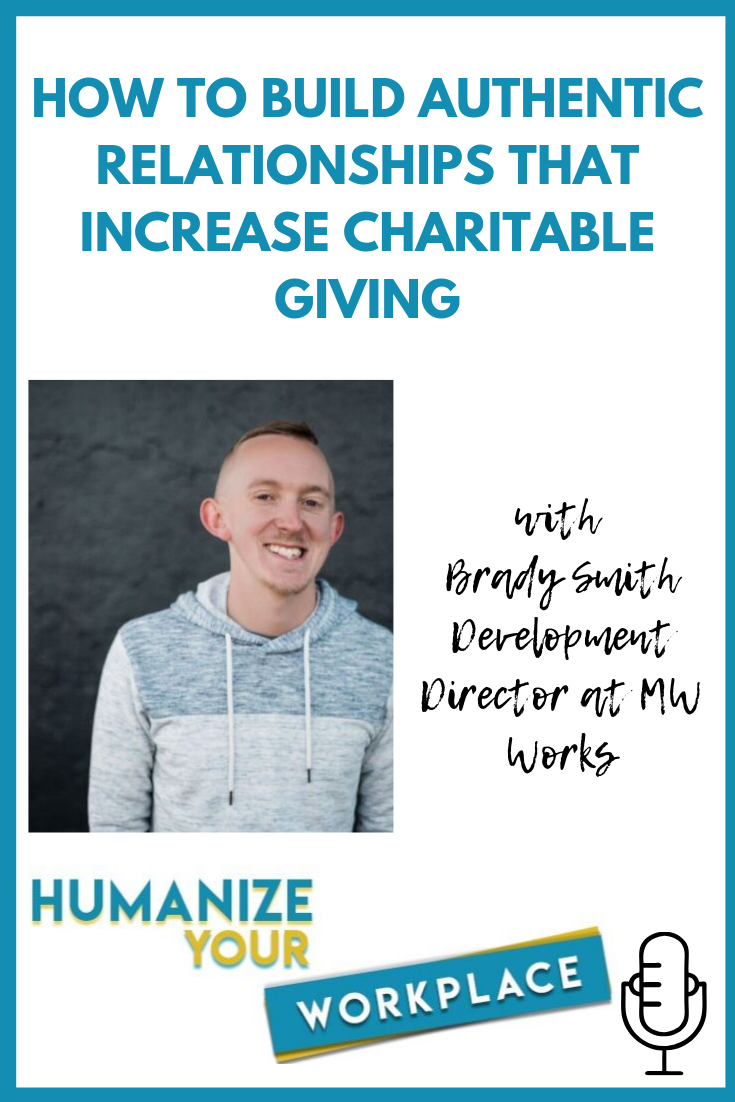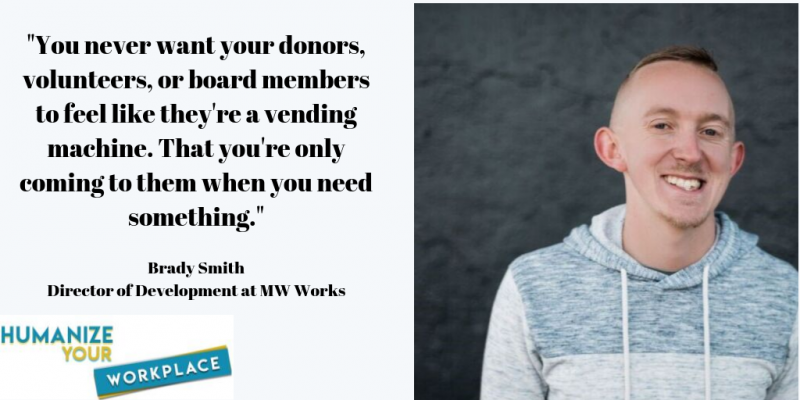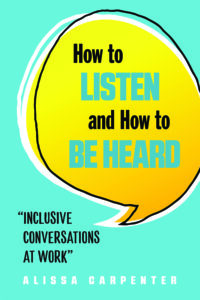On this week’s episode of Humanize Your Workplace, we are joined by Brady Smith, Director of Development for NW Works. We chat all about:
- transactional to transformational relationships
- seeing people for more than their title
- treat people like you want to be treated
- using the 5 love language concepts at work
To listen to this week’s episode, head over to Google Podcasts, Spotify, Apple Podcasts, or Stitcher, check it out below.
Can you tell us a little bit more about what your role is specifically in your new role at NW Works what that looks like?
I just started at NW Works about two months ago as their Director of Development. It’s actually the first Director of Development that they’ve had in their 50–year history. It’s an amazing organization and they help find employment opportunities and workforce entry for individuals with disabilities all across the spectrum.
They generate an income on their business lines and their business services. So, unlike most nonprofits they’ve never really had to depend on donors and any type of fundraising. They’ve been pretty self-sufficient and now they’re at a point where they want to grow. They brought me in and now we’re rebuilding a development program together.
Who would you like to thank for inspiring you in your professional life and why?
It’s probably cliché but I don’t think that I would have been given the opportunity or believed that I could have any type of success especially at such a young age without the guidance and the belief my mom always instilled in me.
By no means did we have a whole lot growing up, but the one thing I always knew and the greatest gift I think you can give people is just making sure they know you believe in them. She never said anything was impossible and she let me go and figure things out and always believed that I could do it.
How have you built relationships with people who are older than you and more established within the organization?
There are people who have supported the organization in the past and it’s important to me to steward those relationships. I don’t want to recreate the wheel. I’m coming in and trying to re-engage with people who have already supported us and have a passion for what we do.
I’ve gotten used to being the youngest person in the room and making sure that I had the clout, but also sat back and listened when I didn’t need to be heard. I think we worry too much about making sure everyone knows we’re there. But if I sit in a room and talk for 50 minutes chances are, I missed out on a lot of opportunities to learn from the people around me.
So, right now it’s a lot of learning and it’s a lot of soaking. I want to make sure people know that I’m confident in what I’m doing and I’m confident in the expertise that I bring to the table.
Can you explain the difference between transactional and transformational relationships?
You never want your donors, board members, or your volunteers to feel like a vending machine. You never want them to feel like you need something and once you get what you need, you’re going to walk away. Then the next time you see them is when you’re coming back You want to enter into relationships that can be mutually beneficial.
If you use the example of the vending machine, someone might give you a $500 gift and that might be the only gift that they ever give you. So, that’s great on that year’s fiscal bottom line, but if you start out on a transformational path, maybe they give you $250 this year but because they’ve engaged in this relationship with you, they become an annual donor and continually increase their gift for the next ten years. It might not look so great at the beginning because you’re really putting in that work, but in the course of ten years you’re looking at $500 versus maybe $10,000.
You mentioned the book, “The Five Love Languages.” How do you think we can bring those practices to workplace?
The book talks about the fact that you’re going to give love and show appreciation to other people in the ways that you best receive it, but other people aren’t always going to receive it that way. So, you might miss out an opportunity to really strengthen that relationship.
Not everyone likes public recognition so if someone is doing well and you think that making sure everybody else knows it is the best way to recognize them, you might be a super turn-off for somebody. You want to do your due diligence ahead of time to build the relationship and understand that maybe that person just wants a $25 gift card or a bottle of wine so that they can enjoy the Friday night with their spouse or maybe they want just a handwritten card of something just to show you gratitude.
The number one reason people leave jobs is because they don’t feel appreciated and they don’t feel like they’re valued in their organization. Compensation is always a top-three, but there’s only so much you can do about that as far as love languages. But simply putting in the effort to make sure your employees know how much you appreciate them goes a long way to performance and enhancing the workplace.
- Cultivating Relationships - July 20, 2021
- Empowering Our People - July 13, 2021
- Finding Purpose - July 6, 2021





